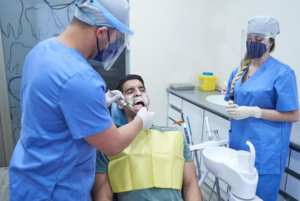
Although you must take care of your health, regardless of age, doing so becomes even more important as you grow older. This is because when you’re young, your body’s still strong enough to heal quickly, whereas an advancing age arrests recovery.
Your muscles and bones are vital in ensuring the body functions normally by providing structure, allowing movement, protecting organs, and storing essential nutrients. Most people achieve maximum bone density during their early 20s. However, with time, the constant activity of muscles and bones may result in wear and tear, especially if you don’t practice the proper care. Therefore, their maintenance is crucial to ensure longevity and slow down the rate of bone or muscle loss.
Unfortunately, it’s a common practice to start worrying about your bone and muscle health when you’ve already reached old age. But by this point, it’s often already too late. Research has repeatedly proven that when you take care of your body, it takes care of you. Besides enhancing performance and improving strength, proper care of muscles and bones can also avoid the risk of developing chronic illnesses.
And so we list six tips you can practice in everyday life to help your muscles and bones stay strong even as you age.
Use of Supplementary Compounds
As you age, the risk of muscle and bone deterioration increases. Often dietary intake is insufficient to maintain optimal health; in such cases, using supplementary compounds is beneficial. And while there are various available drugs, one of the best options for you might be selective androgen receptor modulators or SARMs. These alternatives to traditional steroids are less likely to cause unwanted side effects. And so, depending on your medical history, you can consult a healthcare professional with a list of SARMs to decide which of these is most suitable.
However, while supplementary compounds can significantly impact supporting bone and muscle health, it’s important to note that these aren’t replacements for a balanced diet or regular exercise. Therefore, you should only take them in addition to a routine healthy lifestyle and after consulting your doctor.
Include Calcium-Rich Foods in the Diet
A calcium-rich diet is crucial in keeping your bones and muscles strong. Your bones act as a reservoir for calcium stores. When there’s a deficiency, the body starts withdrawing from what is available in the bones. In severe cases, this can weaken bone density, putting you at risk of falling, getting injured, or even fracturing your bones.
Besides bone health, muscles also rely heavily on calcium. This is because each time your muscle contracts, it needs calcium ions to send signals for signaling and coordination.
Dairy products like milk, yogurt, and cheese are rich in calcium. You can also include leafy greens, fish, and nuts to make up for the recommended dietary intake. It’s also essential to understand that as you age, your bone’s ability to absorb calcium weakens; therefore, the need for a calcium-rich diet becomes a priority.
Regular Exercise
Doctors often recommend regular exercise to people, regardless of whether they’re sick or not. Besides preventing the risk of severe and chronic illnesses, physical movement helps keeps bones and muscles in your body strong.
For instance, walking, running, or weightlifting directly impact bone health since these stimulate the bones to become denser. Additionally, it reduces your chances of developing osteoporosis because of enhanced bone density and improves the coordination and balance of an individual. Regarding muscles, exercise is ideal for improving strength, supporting a better posture, and ensuring functional independence.
Different types of activities can influence how your bone and muscles strengthen. Discuss your options with a professional and develop a plan that includes cardiovascular exercises, flexibility, and strength training.
Check Hormone Levels
Regularly checking your hormone levels can also be highly beneficial in maintaining strong bones and muscles. Hormones play a vital role in regulating various processes in the body, including bone and muscle health.
One such hormone that significantly impacts bone strength is estrogen. In women, the decline in estrogen levels during menopause can lead to bone loss and an increased risk of osteoporosis. Regular monitoring of hormone levels can help identify any hormonal imbalances or deficiencies that may contribute to bone weakening. By addressing these imbalances through appropriate treatments, such as hormone replacement therapy, people can prevent or slow down bone loss, ensuring their bones remain strong and resilient.
Similarly, testosterone, primarily found in men, plays a significant role in muscle health. Low testosterone levels can result in muscle weakness, reduced muscle mass, and impaired muscle function. Regular hormone level checks can help detect low testosterone levels and guide appropriate interventions to optimize hormone balance. This may involve testosterone replacement therapy, exercise regimens, and dietary modifications, all of which can contribute to preserving and strengthening muscle tissue.
Avoid Substance Use
Another helpful tip that strengthens bones and muscles is to avoid substance use, including alcohol and drugs. Alcohol, for instance, interferes with the body’s ability to absorb calcium and vitamin D, which are essential for maintaining bone strength. Prolonged alcohol abuse can lead to decreased bone density, increased risk of fractures, and impaired muscle function.
Likewise, extensive drug abuse can also negatively impact bone and muscle health. Since psychostimulants may cause muscle wasting, weakening, and decreasing muscle mass, they quickly deteriorate health. Additionally, they can disrupt the normal bone remodeling process, increasing the risk of osteoporosis and fractures.
Therefore, choosing a healthy lifestyle free from alcohol and drugs allows the body to maintain proper nutrient absorption, hormone balance, and overall physiological functioning. This, in turn, supports developing and maintaining strong bones and muscles.
Staying Hydrated
Water intake significantly impacts all body functions and various psychological processes, including the musculoskeletal system. A major portion of muscles consists of water, and severe dehydration can cause muscle fatigue, cramping, or weakness. Furthermore, physical exertion produces heat, for which water is essential to bring the temperature down through sweat production.
Bones also require adequate water intake since it helps lubricate joints through the synovial fluid. Severe dehydration can reduce the production of synovial fluid in the body, which causes friction during movement, discomfort, and stiffness. Additionally, proper hydration ensures efficient delivery of minerals, vitamins, and other nutrients throughout the body, supporting bone formation and maintenance.
Most healthcare professionals recommend drinking at least eight glasses of water daily, but this requirement may vary from person to person.
Conclusion
Practicing an overall holistic approach towards maintaining your health is the best solution for keeping your muscles and bones strong, even as you age. However, instead of waiting for a diagnosis or illness to take hold of you, taking a proactive approach early on is most suitable. Use these tips above for improved well-being and a lower risk of developing health concerns later in life.








